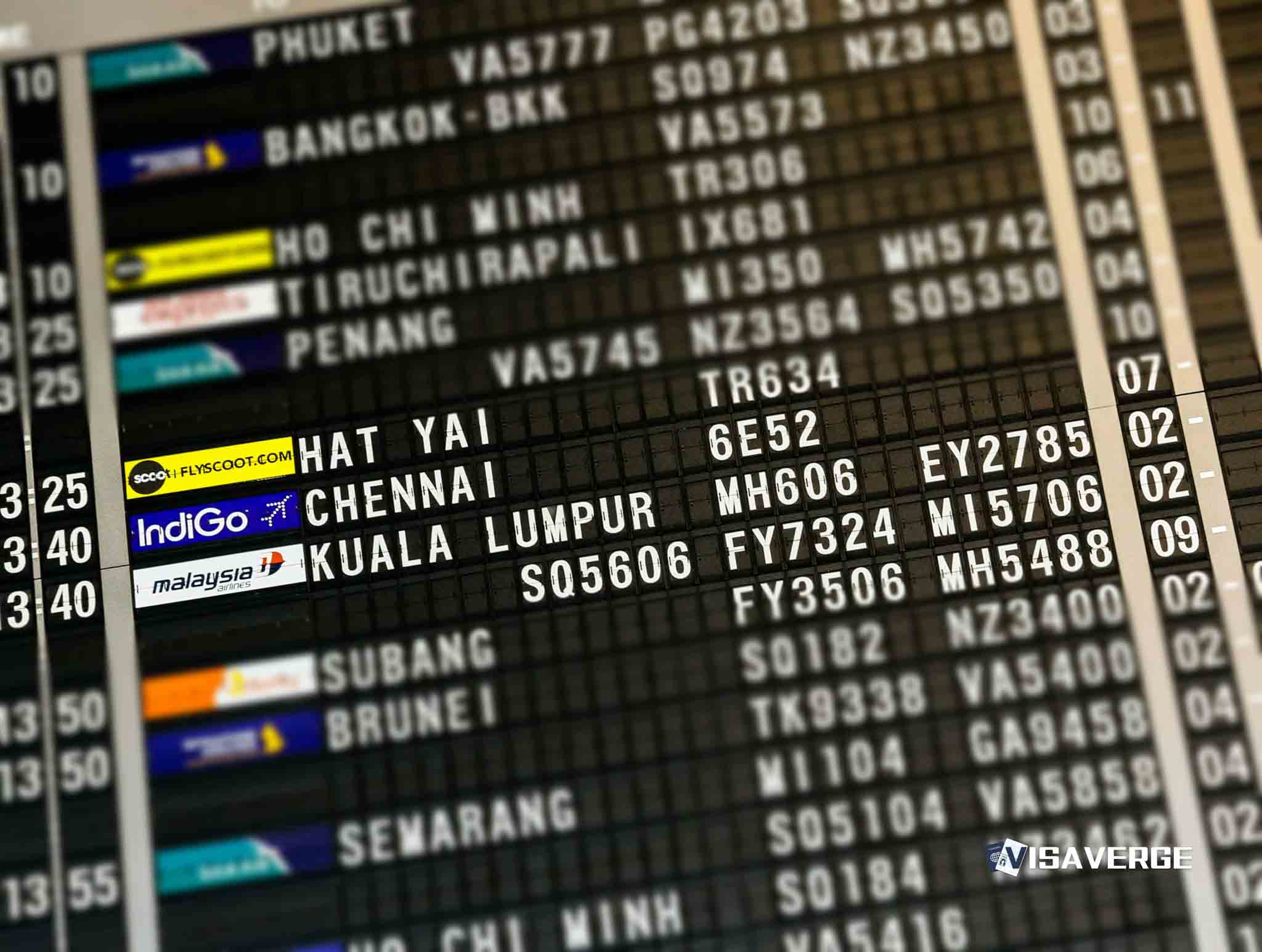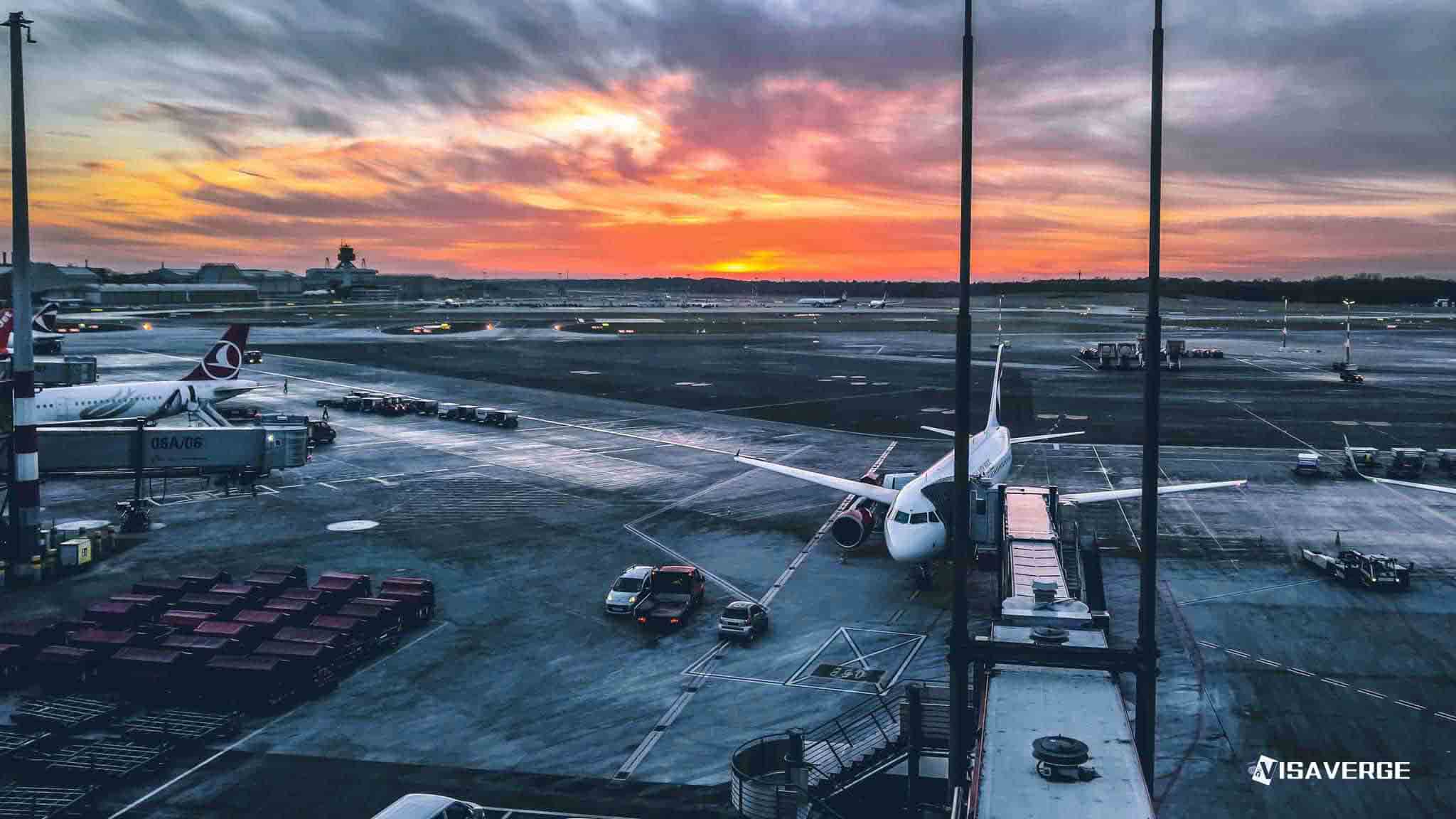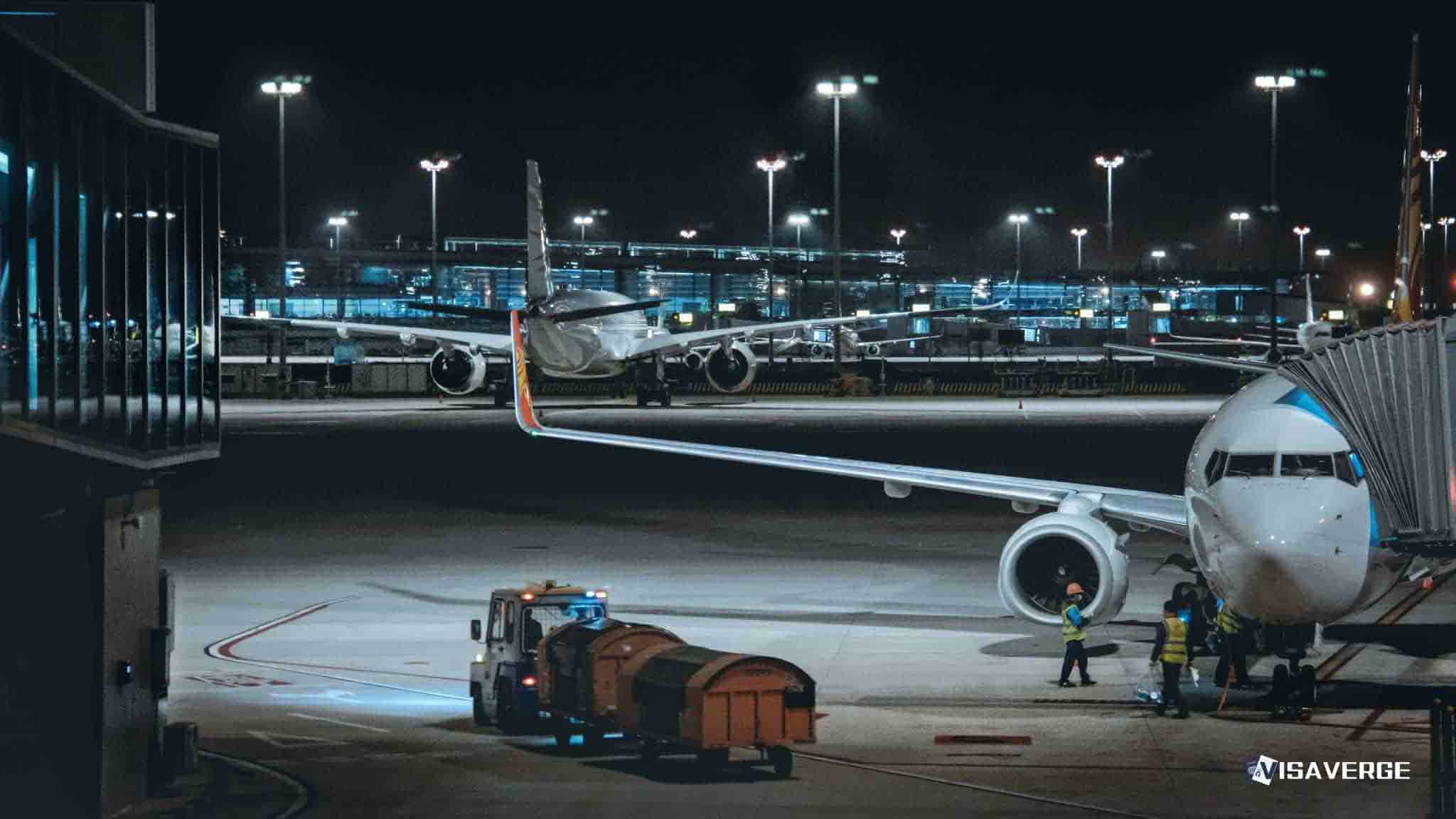Quick Glance:
- Financial proof is necessary to obtain a US tourist visa, including bank statements, employment letter, tax documents, or sponsorship.
- Sufficient funds must cover all trip expenses, but the specific amount depends on the planned activities and duration.
- Having strong ties to home country is essential, and it’s important to stay organized and prepared for the visa interview. If you’re planning a trip to the United States for tourism, one of the essential steps in the visa application process is proving that you can financially support yourself during your stay. The U.S. government requires this proof to ensure that visitors can afford their trip without resorting to unauthorized employment or government assistance.
Understanding Financial Proof Requirements
When it comes to the financial proof required for a U.S. tourist visa, also known as a B-2 visa, applicants must demonstrate the ability to cover all expenses, including accommodation, travel, food, and any other costs that might arise while in the United States.
Here’s a breakdown of what you’ll need to show:
- Bank statements: These should reflect a steady and sufficient balance over a period that shows your financial stability. It’s advised to include several months’ worth of statements.
- Employment letter: If you’re employed, a letter from your employer stating your position, salary, and the duration of your employment, as well as the intended period of your vacation, can be very supportive.
- Tax documents: Providing your tax returns can offer another layer of credibility to your financial status, showcasing your annual income.
- Sponsorship: In case you have friends or relatives in the U.S. who will be financially supporting your trip, their bank statements, employment details, and a letter of invitation might be necessary.
The consulate officer examines these documents to ensure you have enough funds to support yourself for the expected duration of your visit and that you are likely to return home after your visit due to economic ties. Your financial ties to your home country can be a strong indicator of your intent to return after your trip.
What Counts as Sufficient Funds?
It’s hard to pinpoint a specific dollar amount that’s considered “sufficient” since this varies based on the length of your stay and your planned activities. However, a general rule of thumb is to show more than enough funds to pay for your trip in its entirety.
The Role of a Formal Sponsor

Sometimes, a visitor may not have sufficient funds and may depend on a sponsor. A sponsor can be a friend or relative who agrees to financially support your trip. The sponsor needs to provide an Affidavit of Support (Form I-134), their tax returns, pay stubs, and proof of their legal status in the U.S.
It’s About More Than Just Money
Remember that showing financial sufficiency is just one part of the visa application process. An applicant also needs to prove strong ties to their home country, which can include job responsibilities, family, property ownership, or educational commitments that indicate the traveler will return home after the visit to the U.S.
Where to Find More Information
It’s advisable to visit the official U.S. Department of State’s Bureau of Consular Affairs website or the U.S. embassy or consulate’s website in your country for comprehensive and up-to-date information regarding visa application procedures and requirements.
Gearing Up for a Smooth Visa Interview
Having all your financial proof in order is essential for a smooth visa interview process. Staying organized, providing clear and detailed documentation, and ensuring that you meet all of the requirements will put you on the right track towards obtaining that stamp of approval for your travel plans.
In summary, presenting a solid financial footing is a crucial aspect of ensuring your U.S. tourist visa application is successful. By carefully preparing your financial documents and understanding what the consular officers are looking for, you can make the process smoother and increase your chances of enjoying your upcoming travels to the United States.
And there you have it! Navigating the financial proof requirements for a U.S. tourist visa doesn’t have to be a daunting task. Just remember to gather your bank statements, employment letter, tax documents, and maybe even snag a fancy sponsor if needed. Show that you’ve got sufficient funds and strong ties to your home country, and you’ll be on your way to exploring the land of burgers and tech wonders in no time. For more visa tips and advice, check out visaverge.com. Happy traveling!
FAQ’s to know:
FAQ 1: What financial documents do I need to provide for a U.S. tourist visa application?
To meet the financial proof requirements for a U.S. tourist visa application, also known as a B-2 visa, you should provide the following documents: 1. Bank statements reflecting a steady and sufficient balance over several months. 2. An employment letter stating your position, salary, duration of employment, and the intended period of your vacation. 3. Tax documents such as your tax returns, which showcase your annual income. 4. If you’re relying on financial support from friends or relatives in the U.S., their bank statements, employment details, and a letter of invitation may be necessary.
These documents will help demonstrate your ability to cover all expenses during your stay in the United States, including accommodation, travel, food, and any other costs that may arise.
FAQ 2: How much money do I need to show as sufficient funds for a U.S. tourist visa?
The specific amount of “sufficient” funds varies based on the length of your stay and planned activities. However, it is generally recommended to show more than enough funds to cover the entire trip. There is no specific dollar amount, as it depends on individual circumstances. It’s important to provide a solid financial footing that demonstrates your ability to finance your trip without resorting to unauthorized employment or government assistance.
FAQ 3: Can I rely on a sponsor for financial support during my U.S. trip?
Yes, if you don’t have sufficient funds, you can rely on a sponsor for financial support. A sponsor can be a friend or relative who agrees to financially support your trip. They will need to provide an Affidavit of Support (Form I-134), their tax returns, pay stubs, and proof of legal status in the U.S. This helps ensure that there are enough funds available to cover your expenses during your stay. It’s important to note that even with a sponsor, you should still provide your own financial documentation to showcase your financial stability and commitment to the trip.
What did you learn? Answer below to know:
- True or False: Bank statements, employment letter, tax documents, and sponsorship can all contribute to proving financial stability for a U.S. tourist visa application.
- What is one factor that consular officers consider when reviewing financial documents for a U.S. tourist visa application?
- Where can you find comprehensive and up-to-date information about U.S. visa application procedures and requirements?
Did you Know?
Did You Know?
- Fact: In addition to bank statements, employment letters, tax documents, and sponsorships, there are other types of financial proof that can be submitted for a U.S. tourist visa application. These may include property ownership documents, educational commitments, and evidence of other significant financial assets or investments.
-
Fact: Consular officers not only review financial documents to assess the applicant’s ability to cover expenses during their stay, but they also consider the applicant’s economic ties to their home country. Factors such as job responsibilities, family, property ownership, or educational commitments can play a crucial role in determining the applicant’s intent to return home after their visit to the U.S.
-
Fact: Comprehensive and up-to-date information about U.S. visa application procedures and requirements can be found on the official website of the U.S. Department of State’s Bureau of Consular Affairs or on the websites of U.S. embassies or consulates in the applicant’s country. These sources provide reliable information regarding specific visa categories, application forms, required documents, processing times, and any recent policy changes or updates.
-
Fact: The specific amount of funds required as “sufficient” for a U.S. tourist visa varies depending on the planned activities and the duration of the stay. While there is no fixed dollar amount, it is generally recommended to show more than enough funds to cover the entire trip. This demonstrates financial stability and the ability to finance the visit without relying on unauthorized employment or government assistance.
-
Fact: Relying on a sponsor for financial support during a U.S. trip is a viable option for those who don’t have sufficient funds. A sponsor can be a friend or relative who agrees to financially support the trip. However, it’s important to note that even with a sponsor, applicants should still provide their own financial documentation to showcase their financial stability and commitment to the trip.
-
Fact: Navigating the financial proof requirements for a U.S. tourist visa doesn’t have to be a daunting task. By understanding the necessary documents, demonstrating financial stability, and providing evidence of strong ties to the home country, applicants can increase their chances of obtaining a visa to explore the diverse wonders of the United States.
These lesser-known facts shed light on the diverse range of financial documentation, the importance of economic ties, and reliable sources of information for U.S. visa applications. Exploring these facts can open up a world of possibilities for travelers seeking to make their dreams of visiting the United States a reality.
Learn Today: Key Terms Explained
Glossary or Definitions
-
Financial proof: Documentation required to demonstrate an individual’s ability to financially support themselves during their stay in a foreign country, such as providing bank statements, employment letters, tax documents, or sponsorship.
-
Tourist visa: A visa that allows individuals to enter a foreign country for the purpose of tourism and leisure activities.
-
B-2 visa: A specific type of U.S. tourist visa that permits individuals to visit the United States for tourism, pleasure, or visiting friends and relatives.
-
Consulate officer: An official from a foreign country’s consulate or embassy responsible for reviewing and processing visa applications.
-
Bank statements: Official documents provided by a bank that detail an individual’s financial transactions, including income and expenses, typically showing the balance in the account over a certain period.
-
Employment letter: A document provided by an employer that confirms an individual’s position, salary, duration of employment, and intended period of vacation, which can support their ability to financially support their trip.
-
Tax documents: Documents, such as tax returns, that provide information about an individual’s income, tax payments, and financial status, which can serve as evidence for financial stability.
-
Sponsorship: When a friend or relative agrees to financially support an individual’s trip and provides necessary documents, such as bank statements, employment details, and a letter of invitation.
-
Affidavit of Support: A legal document (Form I-134) required for sponsorship in the United States, where a sponsor agrees to financially support an individual’s visit and provides supporting documentation, such as tax returns, pay stubs, and proof of legal status.
-
Strong ties to home country: Factors that demonstrate an individual’s commitment to returning to their home country after their visit, such as job responsibilities, family, property ownership, or educational commitments.
-
Visa interview: A meeting with a consular officer as part of the visa application process where an individual’s eligibility for a visa is assessed, including their financial stability and ties to their home country.
-
U.S. Department of State’s Bureau of Consular Affairs: The official government department responsible for providing information and services related to visas and consular affairs in the United States.
-
Visa application procedures and requirements: The necessary steps and documentary evidence needed to apply for a visa, including financial proof, ties to home country, and other specific requirements based on the type of visa being applied for.
-
Stamp of approval: A metaphorical term referring to the successful issuance of a visa or document, indicating that an individual’s visa application has been accepted.
-
Foreign country: A country different from an individual’s country of citizenship or residence, to which they are seeking entry for various reasons, including tourism or business.
-
Unauthorized employment: Engaging in work or employment activities in a foreign country without proper legal authorization, which is typically prohibited under tourist visa regulations.
-
Government assistance: Financial aid or welfare provided by the government to individuals in need, which may be restricted for visitors on tourist visas.
-
Formal sponsor: A sponsor who formally agrees to provide financial support for an individual’s trip, typically through legal documentation and financial evidence.
-
Consular officers: Officials at embassies or consulates responsible for processing visa applications, conducting interviews, and making decisions on visa issuance.
-
Financial stability: The state of having sufficient financial resources, income, assets, or support to cover the expenses associated with a trip or stay in a foreign country.








I see that there is a requirement for funds to be in the bank account of the person wishing to get a visa for visit be there at least 3 to 6 months where do we find that legal information as to the requirement being that long
[…] more details? You can learn more about financial proof requirements and related […]